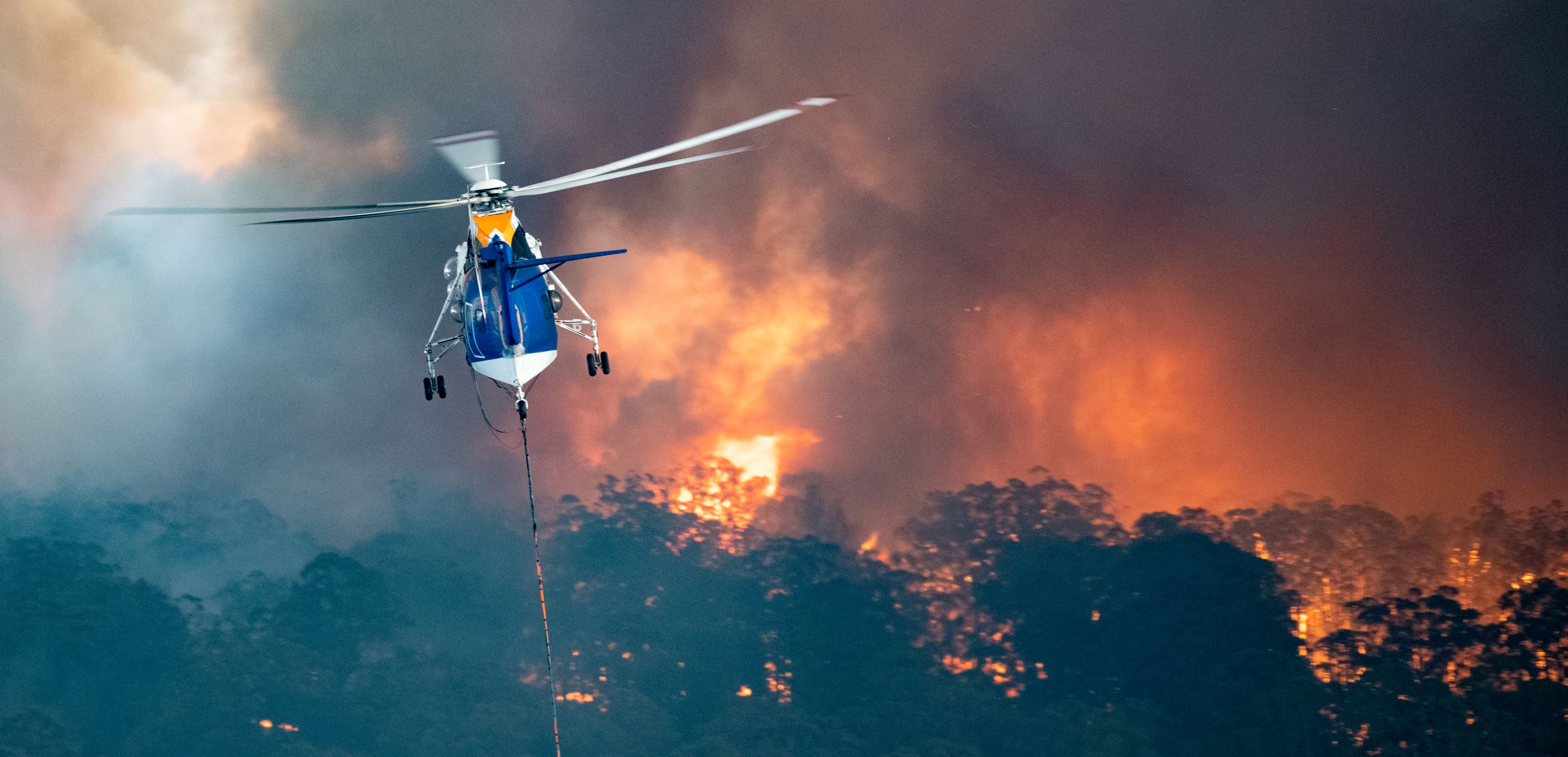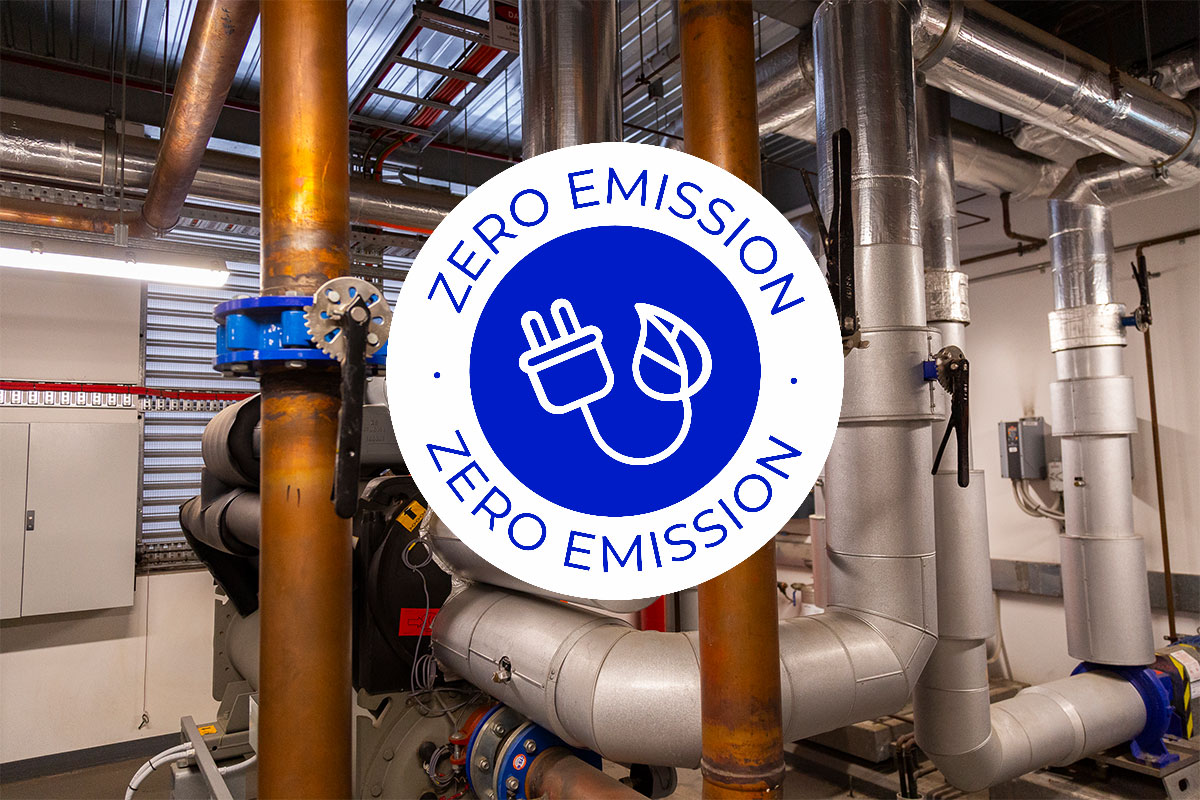
A firefighting helicopter tackling a bushfire near Bairnsdale, Victoria on 31 December 2019. Picture: AAP IMAGE/State Government of Victoria
The ANMF (Vic Branch) has called on the Victorian Government to initiate a decade of transformation to prepare the health and human service system for the increasing impacts of climate change.
In our submission to the Health and Human Services Adaptation Action Plan 2022-2026 consultation, made following a survey of members, the Branch also urged the Victorian Government to consider the cost of inaction when making business cases and funding decisions designed to prepare the system for climate change.
As noted in our submission, nurses and midwives have valuable first-hand experience dealing with climate change related events.
The recent and unforgettable 2019-20 heatwave and bushfires showed just how devastating such events can be for communities, health care staff and services.
During the bushfires, members from affected communities who were providing care had their own homes and properties destroyed while at work. To provide relief to these nurses and midwives and help services meet their community’s heightened health care needs, almost 1000 ANMF Vic Branch members signed up to offer volunteer help.
Consistent with this experience, our submission detailed the following six interrelated priority concerns endorsed by members who responded to our survey:
- direct impacts to health and wellbeing from extreme weather events such as bushfire and flood
- indirect impacts to health and wellbeing such as water or food borne disease
- impact on the determinants of health and wellbeing such as employment, income, and access
- disproportionate impacts on different communities
- disruption to service delivery
- damage to infrastructure such as hospitals, housing, and services.
Each of these concerns requires recognition, mitigation strategies, and as a last resort, adaptation.
The Branch submission provided feedback on the 14 key actions proposed in the Adaption Action Plan and made numerous recommendations to strengthen these actions.
Our key recommendations included that the Department of Health:
- commission a report on current and future impacts of climate change on the health of all Victorians and on health service demand, under various climate and intervention scenarios
- actively promote uptake of the climate risk module being developed by the Australian Commission on Safety and Quality in Healthcare
- incorporate climate risk and mitigation into the governance and management of healthcare, with particular emphasis on board and executive roles
- require health organisations to develop emission reduction targets that align with their reporting profile through the EDMS, and to include progress in their annual report
- prepare and distribute a health technical advice note on making new and existing health infrastructure climate resilient
- ensure new hospitals and healthcare facilities are powered by 100% renewable energy, including gas free infrastructure.
- develop actions and strategies that educate and empower healthcare workers and governance to participate in mitigation and adaptation as part of their role, with the support of the Department
- dedicate resourcing for the Victorian Sustainability Unit to develop a zero-emissions trajectory for healthcare including Scope 3 emissions
- re-institute the Victorian waste education officer role
- support the employment of environmental sustainability officers in healthcare.
With high quality care, nursing and midwifery excellence, and patient outcomes all placed at risk by the impacts of climate change, this is an important submission and the input from members has been invaluable.
The department is scheduled to publish a summary of this consultation in September 2021.




